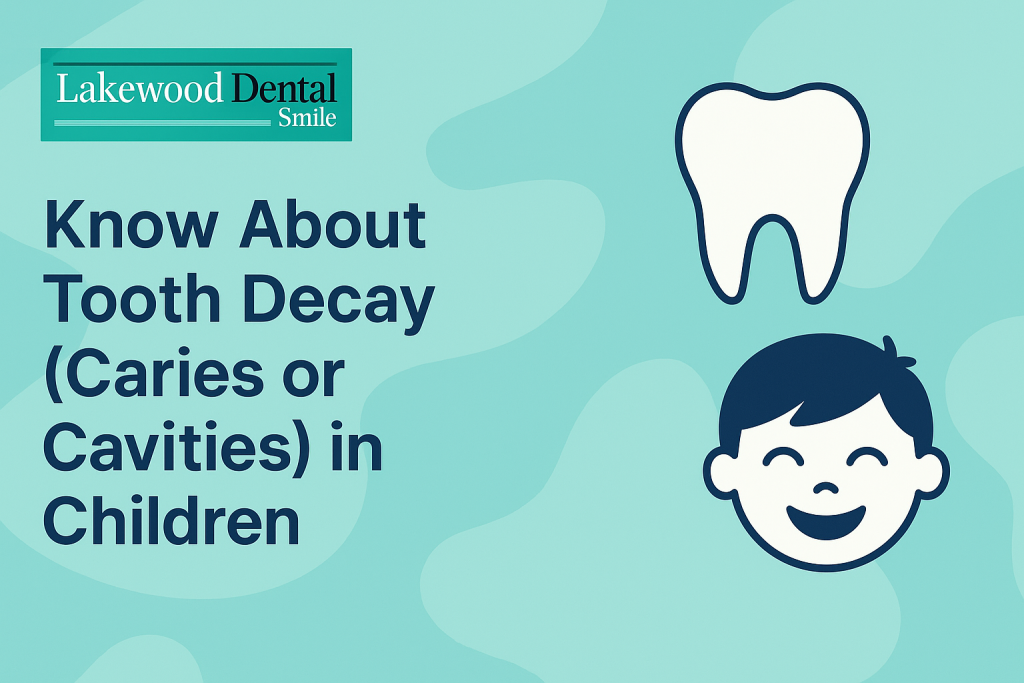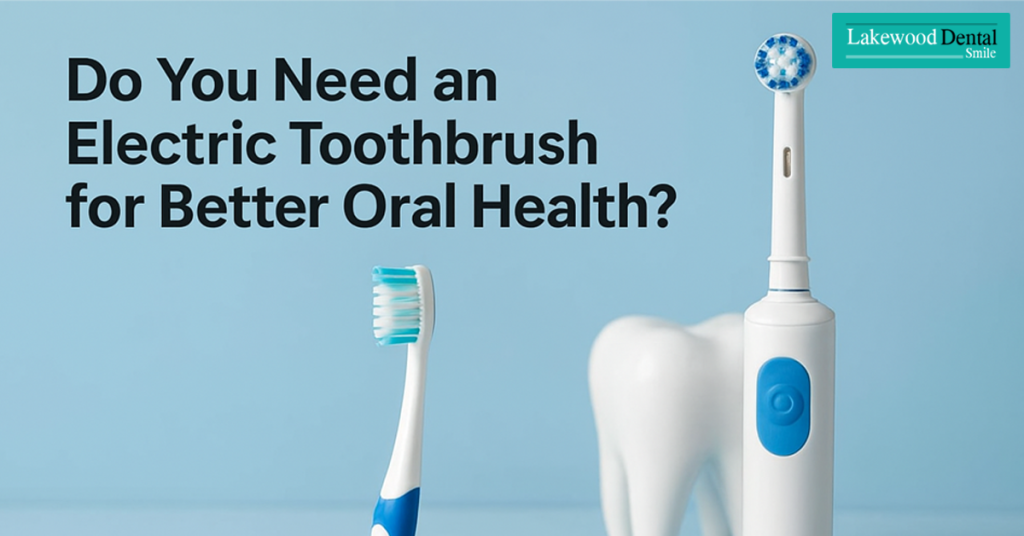
Tooth decay in children is more common than many parents realize. Even though baby teeth eventually fall out, they play an essential role in guiding permanent teeth into the correct position and maintaining proper spacing. Healthy primary teeth help children chew comfortably, speak clearly, and develop confidence in their smile. This is why preventing tooth decay in children is an important part of early oral care.
It is possible for children to develop cavities even when they follow good brushing habits. Factors like sugary snacks, nighttime bottle feeding, genetics, and inconsistent cleaning can all increase the risk. Tooth decay occurs when bacteria feed on sugars and produce acids that weaken enamel. Without treatment, this can lead to pain, infection, and complications that affect permanent teeth.
Why Baby Teeth Matter More Than You Think
Baby teeth remain in the mouth for several years, and losing them too early can create long-term issues. Primary teeth:
- Maintain space for adult teeth
- Support proper jaw development
- Help children chew food safely
- Assist in speech development
- Prevent crowding and misalignment
Even though they are temporary, they require the same level of care to prevent tooth decay in children during early growth.
Understanding Tooth Fillings for Children
When cavities are detected, pediatric dentists may remove the decay and restore the tooth with a filling or crown. This prevents further breakdown and protects the underlying permanent tooth. Treatment options include:
- White composite fillings, which blend naturally with the tooth
- Metal fillings, which are durable and cost-effective
- Crowns, used when decay is extensive and the tooth structure needs extra support
Children must continue brushing and flossing every day to maintain fillings or crowns and prevent new decay from forming.
Can Tooth Decay Come Back?
Even after treatment, decay may return if bacteria continue to affect the tooth surface. A dentist may recommend replacing a filling when:
- A new cavity develops around the repair
- The tooth becomes sensitive or painful
- The restoration wears down over time
Regular checkups help monitor changes early and reduce the likelihood of more invasive procedures.
When Extraction Becomes Necessary
In advanced cases, a tooth may be too damaged to save. Extraction may be recommended when:
- Decay reaches the nerve and causes severe infection
- The tooth becomes loose due to gum damage
- Pain interferes with eating or sleeping
To maintain the space after extraction, dentists may place a space maintainer so the permanent tooth can grow in correctly and prevent crowding or shifting.
Why Multiple Dental Visits May Be Needed
The number of appointments depends on your child’s comfort and cooperation. Some children can complete several fillings in one visit, while others may need shorter, spaced-out sessions. Pediatric dentists consider:
- The child’s age and anxiety level
- Ability to stay still in the chair
- Number and severity of cavities
Creating a positive experience encourages children to return confidently for future care.
5 Smart Facts Every Parent Should Know
- Baby teeth are essential, not disposable—they guide permanent tooth development
- Sugary snacks and drinks are leading causes of early tooth decay in children
- Regular dental checkups can prevent cavities before they become painful
- Fluoride and sealants help protect enamel and reduce cavity risk
- Early treatment prevents future problems, including infection and misalignment
These practices support strong oral health habits that last into adulthood.
How Parents Can Prevent Tooth Decay
You can significantly lower your child’s risk of cavities by:
- Brushing twice daily with a soft-bristled brush
- Using fluoride toothpaste in recommended amounts
- Avoiding frequent snacking on sugary foods
- Limiting juice and sweet drinks
- Encouraging water between meals
- Scheduling dental visits every six months
- Supervising brushing until at least age 7–8
Teaching healthy routines early creates long-term benefits for every growing smile.
Pediatric Dental Care in Dearborn, Michigan
If you’re in Dearborn, Michigan, Lakewood Dental Smile provides gentle, child-focused care designed to protect primary teeth until permanent teeth develop. With personalized treatment plans and a supportive approach, the team helps children stay comfortable while building healthy oral habits that last throughout their lives.




